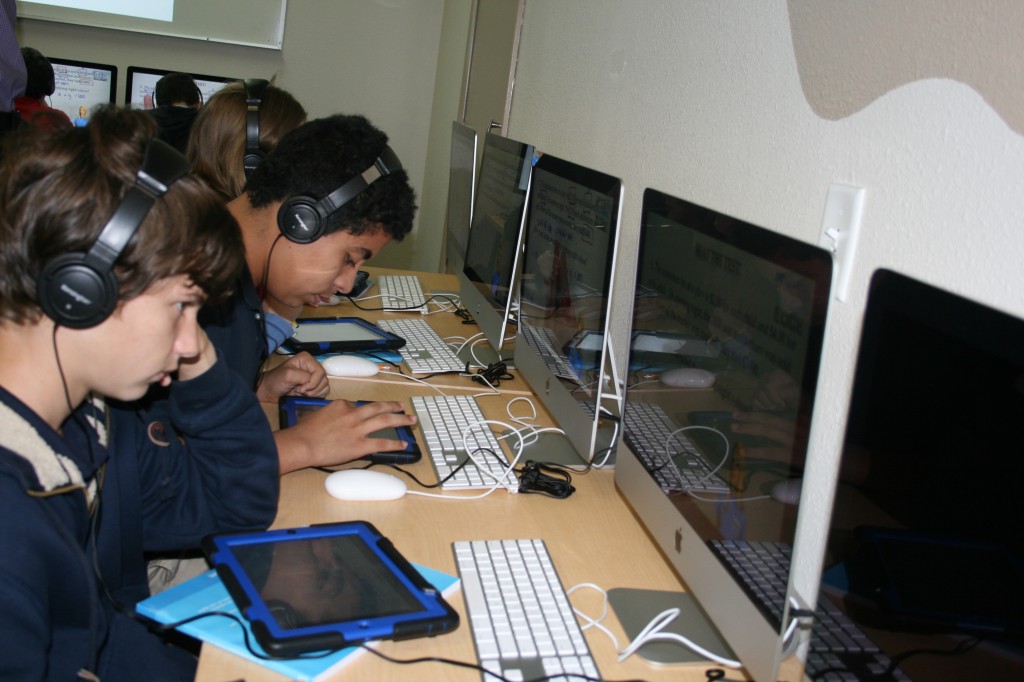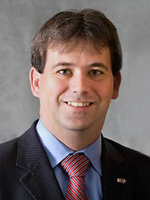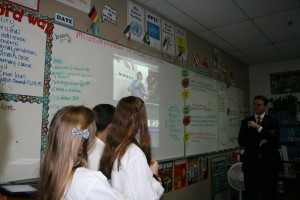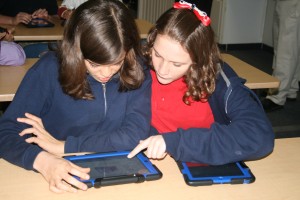
Two top Florida lawmakers have joined together on supporting a bill that would target roughly $100 million a year for digital learning in public schools and require districts to build workable technology plans to take advantage of it.

Sen. Education Chairman John Legg and House Speaker Will Weatherford introduced the proposal during a press conference Friday at Legg’s charter school, Dayspring Academy, in New Port Richey. Legg has filed the bill for the 2014 legislative session, which begins March 4.
A draft of the legislation shows that Weatherford and Legg want to create a new category in state education funding, known as the Florida Education Finance Program (FEFP), to drive technology. The category would be called “Florida Digital Classrooms” and draw up to 1 percent of the “base student allocation” as a funding stream. In this current year, that 1 percent would translate to $37.52 per student, or roughly $101.2 million statewide.
The focus is on taking current investments in technology and digital learning to the next level. ““I’ve seen it firsthand,’’ Legg said before the press conference. “Districts and schools buy up the technology and then it sits in the box because they don’t know how to integrate the concepts and use it with students.’’
Senate Bill 790 calls for each district and the state to develop digital classroom plans that include technology purchases and teacher training and for those plans to be tied to student performance and measured against benchmarks established by the Department of Education. “Results of the outcomes shall be reported at least annually and be accompanied by an independent evaluation and validation of the reported results,” says the bill draft.
Ruth Melton of the Florida School Boards Association told redefinED that the proposal, so far, appears to address her concerns about ensuring there is accountability within the program and that teachers are properly prepared, but she would prefer the funding come from some place other than FEFP dollars.
“Digital learning is going to move forward and should,” Melton said. And it has been funded in the past by the FEFP, but another source “would provide greater clarity to what is being provided,” she said. “When there’s an increase in the total FEFP line item, there’s an assumption that everything is getting an increase. But sometimes the additional money masks declines in other areas.”
In addition, the bill requires districts to provide grade-specific computer instruction with the introduction of cyber security in elementary school, digital arts in middle school and computer coding in high school. Also, at the high school level, rigorous computer programming courses could be counted toward satisfying some of the existing graduation requirements.
“Students need those digital skills,’’ Legg said, “but it’s more than just having computers in the classroom. … We’re building coursework so students will be able to use the technology. You have to learn to crawl before you walk.’’
That’s what students and teachers have been doing at Dayspring since August, when the middle school rolled out iPads for all 202 boys and girls. Teachers took part in training even before the school year began, Principal Sara Calleja said, and continue to meet weekly to learning new skills and help each other. Sometimes, she said, students are the ones teaching the teachers.

In Sandra Rivera’s algebra class, eighth-graders use their iPads to learn linear equations by accessing Algebra Nation, a free online preparatory course developed by the University of Florida. Does an iPad make it easier to learn? Weatherford asked the class. “Yes,” answered 14-year-old Justin Scherer. “You can pause the person teaching you” to make it easier to grasp concepts. “It keeps me organized,” said a classmate. “If I have a question for the teacher, I can email them.”
“So that whole the dog ate your homework doesn’t work for you anymore?” Weatherford joked.
Digital technology does away with backpacks stuffed with books and papers, said honors science teacher Keith Duncan. Instead, students have everything they need at their fingertips – and, important for courses like science, they have the most up-to-date information. It’s also is a great way to get students’ attention – and keep it, said eighth-grade civics teacher Nitza Lord. Her classes have used iPads this school year to produce Vine videos and create Power Point presentations. “They’re having to incorporate these things while taking the lesson,” Lord said. It’s a much easier way to motivate them that “you up here going ‘blah, blah, blah,’ ” she said.
At the end of the tour, which included Pasco school district officials and members of the local Chamber of Commerce, Weatherford said he was “blown away by the level of engagement that students have here. It’s very clear to me that it’s a model that works.”

And it’s something students need, he said, adding, “If you don’t know how to use an iPad … if you don’t know how to use the technology, you will be unemployable in the next few years.”
The proposal, which Legg anticipates will garner bipartisan support, dovetails with last year’s expansion of the Career and Professional Education Act (CAPE). The new CAPE provisions let high school students earn industry certifications at the same time as their diplomas. The draft bill also comes on the heels of Gov. Rick Scott’s recommended budget, which includes earmarking $40 million for school technology.



It’s great to see Florida making steps towards upgrading technology, especially in education. Gov. Scott actually has something in his proposed budget that will allocate 3 million towards technology and services related to that field.
[…] LAWMAKERS TARGET FUNDING FOR DIGITAL LEARNING EXPANSION via Sherri Ackerman of redefinEDonline.org […]
What I would like to know is WHO is going to get all the money for supplying the technology and support? I am sick of seeing politicians pass bills that put money in their or their friends pockets.